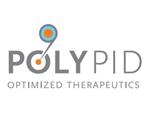PolyPid Announces Top-line Results of Phase 3 SHIELD I Trial of D-PLEX₁₀₀ for the Prevention of Surgical Site Infections in Abdominal Surgery
SHIELD I Study did not Achieve its Primary Endpoint of Reduction in Surgical Site Infections and Mortality
In an FDA Requested Pre-specified Subgroup Analysis in Subjects with Incision Lengths over 20 centimeters (n=423), D-PLEX100 + SoC Achieved a Statistically Significant Reduction of 54 percent on the Primary Endpoint versus SoC alone (p<0.0032)
PETACH TIKVA, Israel,
SHIELD I (Surgical site Hospital acquired Infection prEvention with Local D-PLEX100) is a prospective, multinational, randomized, double-blind Phase 3 trial designed to assess the efficacy and safety of D-PLEX100 administered concomitantly with standard of care (SoC) compared to a SoC alone arm, in the prevention of post-abdominal surgery incisional infection. The primary endpoint of the trial is the combination of incisional SSIs and mortality as measured by the proportion of subjects with either an SSI event, as determined by a blinded and independent adjudication committee, or mortality for any reason within 30 days post-surgery. The SHIELD I study is designed to demonstrate at least a 50 percent reduction in incisional SSIs in the D-PLEX100 treatment arm compared to the control arm, with 90 percent power and a maximum alpha level of 0.0487. A total of 977 patients were randomized into the study, consisting of 488 subjects in the D-PLEX100 treatment arm and 489 patients in the control arm.
In the Intent to Treat (ITT) population, the local administration of D-PLEX100 and SoC (n=485) resulted in a decrease in SSIs and mortality of 23 percent compared to SoC alone (n=489) (p=0.1520). Within the first 30 days post-surgery, there were 15 deaths in the SoC treatment arm, as compared to 11 in the D-PLEX100 treatment arm. The local administration of D-PLEX100 as compared to SoC alone also did not achieve statistical significance on the key secondary endpoint evaluating SSI events within 30 days post-abdominal index surgery.
In a pre-specified subgroup ITT analysis requested by the
“While these top-line results did not meet our expectations following the highly compelling positive data generated in our Phase 2 study, we remain confident in the future potential of D-PLEX100,” said Dikla Czaczkes Akselbrad, PolyPid’s Chief Executive Officer. “The SHIELD I study, while well-executed and balanced, had a significantly lower SSI rate in the SoC treatment arm of 6.3% percent, as compared to mid-teens percentage infection rate for colorectal surgeries according to published literature at the time of the study design. The overall infection rate in SHIELD I was meaningfully impacted by the COVID-19-related safety restrictions introduced in the surgical setting during that time, a factor that decreased the infection rate in surgical procedures during the COVID-19 pandemic. The low infection rate in the SoC treatment arm of the trial, significantly below historical infection rates consistent with colorectal cancer procedures, established a low baseline from which it was highly challenging to show a significant effect on SSIs. Looking ahead, we are encouraged by the data generated in the pre-specified subgroup analysis that evaluated the primary endpoint in subjects with incision lengths over 20 centimeters, which demonstrated a 54 percent reduction in SSI rates between the D-PLEX100 treatment arm and the control arm. We intend to further assess the collective results of SHIELD I and discuss the COVID-19 driven lower than anticipated overall infection rate in the study with the FDA, as we determine the appropriate next steps for D-PLEX100 for the prevention of SSIs in abdominal surgery. On behalf of the
There were no safety concerns raised by the independent Data Safety Monitoring Board in SHIELD I.
The Company’s second Phase 3 trial of D-PLEX100 for the prevention of SSIs in abdominal surgery,
About D-PLEX100
D-PLEX100, PolyPid’s lead product candidate, is designed to provide local prolonged and controlled anti-bacterial activity directly at the surgical site to prevent SSIs. Following the administration of D-PLEX100 into the surgical site, the PLEX (Polymer-Lipid Encapsulation matriX) technology pairs with Active Pharmaceutical Ingredients, enabling a prolonged and continuous release of the broad-spectrum antibiotic doxycycline, resulting in high local concentration of the drug for a period of 30 days for the prevention of SSIs, with additional potential to prevent SSIs caused by antibiotic-resistant bacteria at the surgical site. D-PLEX100 received Breakthrough Therapy Designation from the
About
Forward-looking Statements
This press release contains “forward-looking statements” within the meaning of the Private Securities Litigation Reform Act and other securities laws. Words such as “expects,” “anticipates,” “intends,” “plans,” “believes,” “seeks,” “estimates” and similar expressions or variations of such words are intended to identify forward-looking statements. For example, the Company is using forward-looking statements when it discusses its ongoing clinical trials, its intention to further assess the collective results of SHIELD I and discuss the COVID-19 driven lower than anticipated overall infection rate in the study with the FDA, as it determines the appropriate next steps for D-PLEX100 for the prevention of SSIs in abdominal surgery, its intention to present the full top-line results from SHIELD I at a future medical meeting and its intention to discuss the results with the FDA and evaluate the appropriate next steps for
References and links to websites have been provided as a convenience, and the information contained on such websites is not incorporated by reference into this press release. PolyPid is not responsible for the contents of third-party websites.
Contacts:
PolyPid Ltd.
COO – US
908-858-5995
IR@Polypid.com
Investors:
646-597-6989
Bob@LifeSciAdvisors.com
Media Contact:
551-444-0784
Nechama.Feuerstein@finnpartners.com

Source: PolyPid Ltd.

